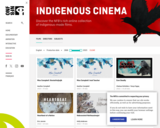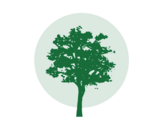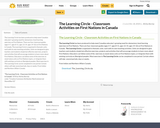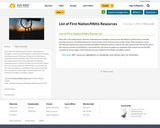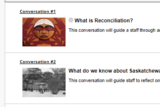Inspiring Success: First Nations and Métis PreK-12 Education Policy Framework was renewed in collaboration among First Nations and Métis organizations, Elders and Traditional Knowledge Keepers, post-secondary and provincial Prekindergarten to Grade 12 education stakeholders, and the Ministry of Education. The vision of Inspiring Success is a provincial Prekindergarten to Grade 12 education system that foundationally places Indigenous knowledge systems, cultures and languages within the structures, policies and curricula to ensure an equitable and inclusive system that benefits all learners. As such, this renewed policy framework guides actions at all levels of the education sector and is aligned with the goals of the Education Sector Strategic Plan. Inspiring Success supports reconciliation, treaty education, Indigenous cultures and languages in the classroom, as well as the infusion of Indigenous perspectives and ways of knowing into all renewed curricula to benefit all learners.
The ministry is committed to facilitate the sharing of information, tools and processes useful to school divisions, teachers and administrators in planning and implementing actions in First Nations and Métis education, in alignment with the policy goals. Improving First Nations, Métis and Inuit student achievement and the learning outcomes for all students is a shared responsibility throughout the PreK-12 education sector.
As a first step, it is recommended to become familiar with the policy framework.
Implementation
We heard from First Nations and Métis organizations, Elders, provincial education stakeholders and post-secondary institutions about how crucial implementation will be for this policy framework. We acknowledge the considerable number of initiatives and programs put in place by government and by school divisions; however, there is more work to do. A variety of tools and resources are available to assist with creating awareness, building support, planning and implementation, including a webinar presentation, PowerPoint slideshow, promotional handout and dialogue questions. Many links are provided within each goal area as suggested resources for teachers and administrators. More will be added as new information and tools become available.


